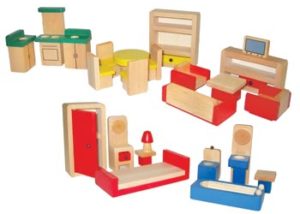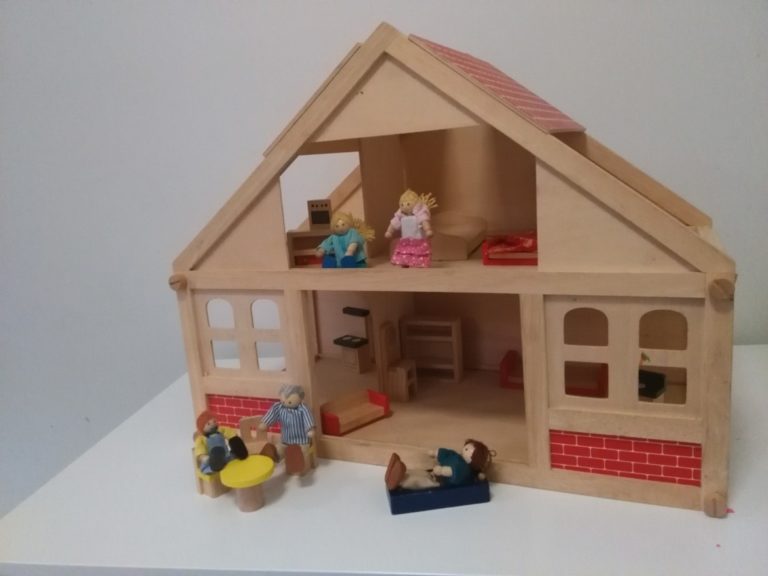Small doll play is a developmental milestone for cognitive skills and imaginary play. It’s the kind of
play which children can enjoy by themselves or with 1-2 friends in a small group. The dolls and
storys they tell can change as they grow and find new interests – and it’s a kind of play that kids enjoy
for many years.
We use small dolls and our dolls house most days in the clinic! Here are some ideas of the ways you can use these toys for play and language.
- Building language and telling stories
With a few simple small dolls children can re-enact their daily routines and everyday lives – which helps them talk about their day. They learn and practice the language they need to understand and use every day – it’s time for a sleep, let’s go upstairs, into bed you go, night night sleep tight! If you add some other items such as a furniture then you can talk with different vocabulary including action words (verbs) – wash, sleep, sit, climb or position words (prepositions ) – under, beside, on, in As your child grows, so will the complexity of the story-lines and the length of time they will pay attention to the task.
- Social skills
 Small doll play is also a great way to practice social language – in a playful, non-threatening way. Getting the dolls to say “Hello” to each other, and ask each other questions like “Do you want to play with me?” and practice suggestions like “Let’s run around!” is such a fabulous rehearsal for making friends and learning to engage others in fun play. Playing with small dolls with your child can help them to learn to listen to play suggestions and learn how to respond in cooperative ways.
Small doll play is also a great way to practice social language – in a playful, non-threatening way. Getting the dolls to say “Hello” to each other, and ask each other questions like “Do you want to play with me?” and practice suggestions like “Let’s run around!” is such a fabulous rehearsal for making friends and learning to engage others in fun play. Playing with small dolls with your child can help them to learn to listen to play suggestions and learn how to respond in cooperative ways.
- Speech sounds
If your child needs to work on a particular speech sound for example SH, then you can use the dolls to go SHopping or have a waSH and practice the sound while you play. We often find that this kind of intentional play is more motivating for little kids than “speech card drills”!
The dolls and furniture don’t need to be too fancy – it’s good to give kids a chance to use their own imagination, and maybe even let them add some details themselves.
As with many play skills, children will find it easier to learn how to play this way if they can watch
and learn from someone else, be it a grown-up or another child. So investing some time in small
doll play with your child can be just the thing to get them started!

